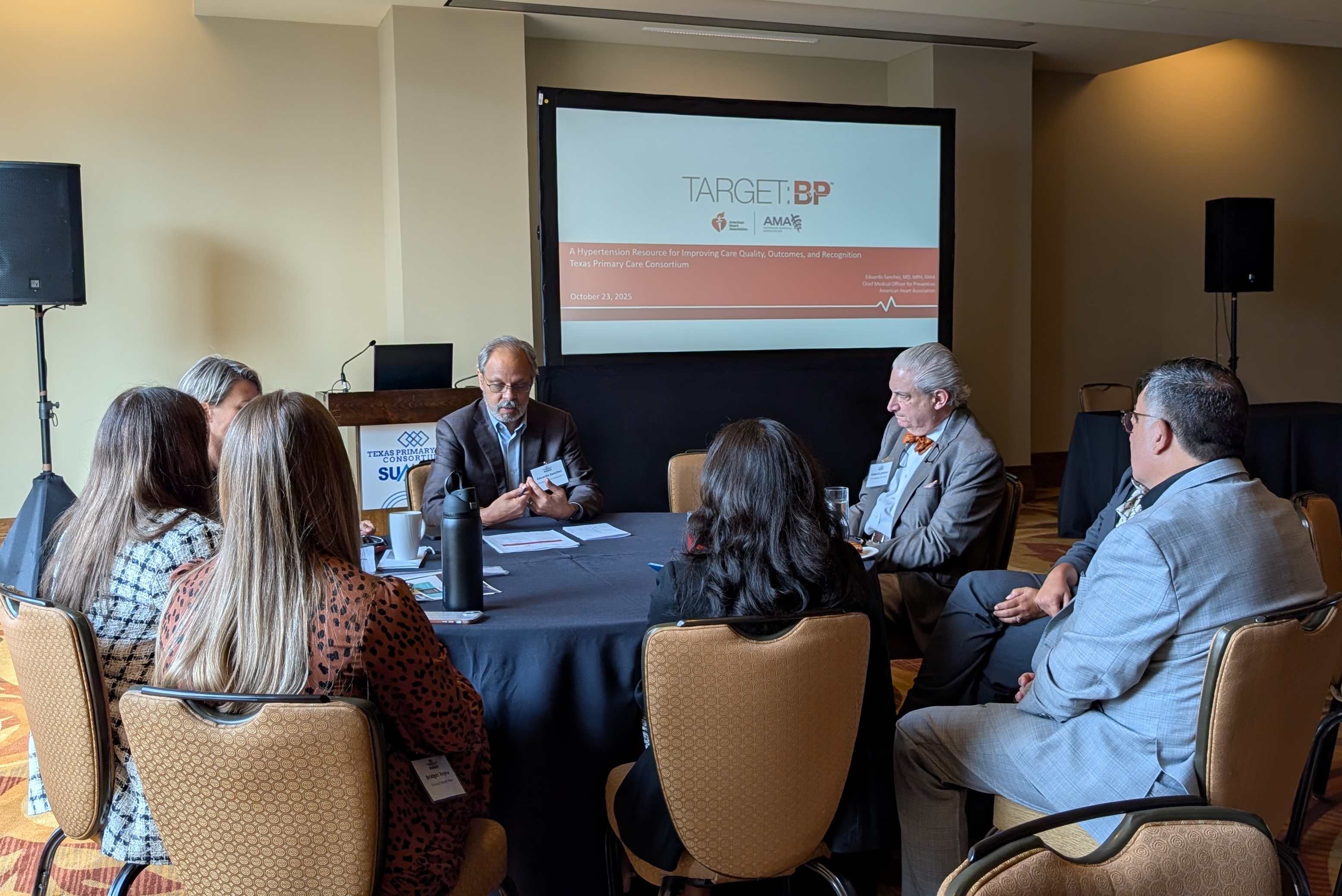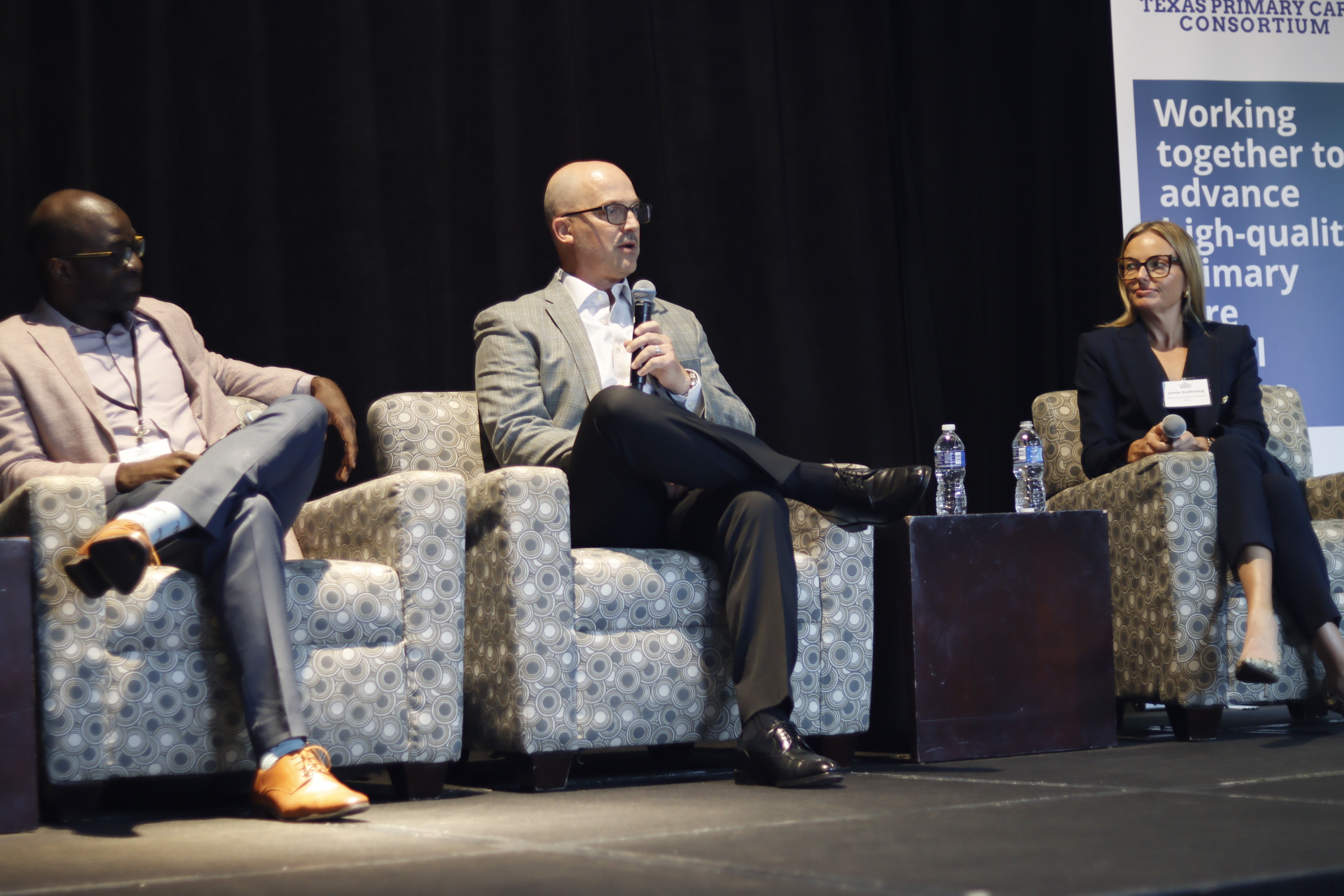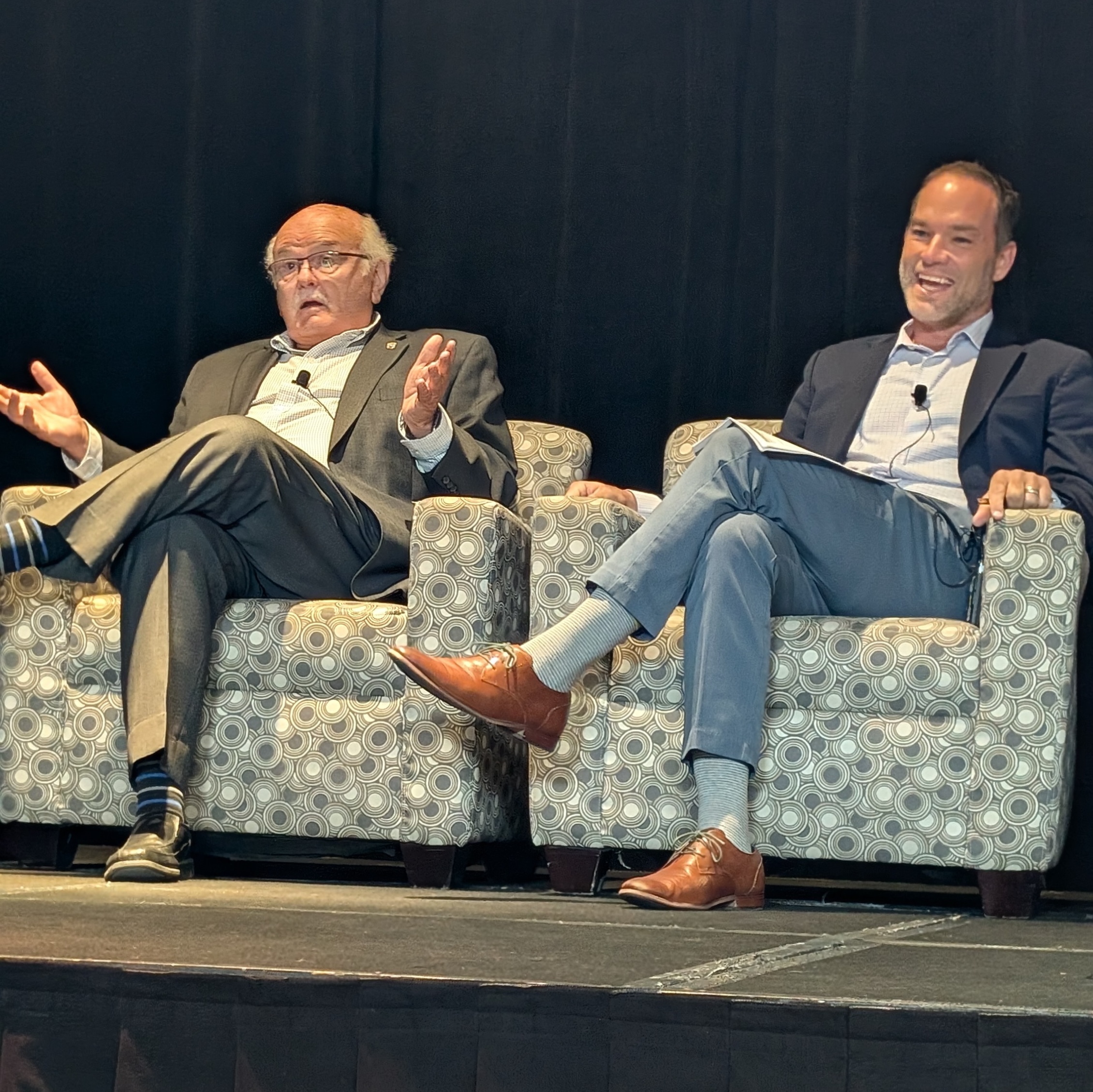Individuals from Texas and beyond gathered in Austin for the 2025 TPCC Summit, a two-day convening dedicated to advancing high-quality primary care.
Individuals from Texas and beyond gathered in Austin for the 2025 TPCC Summit, a two-day convening dedicated to advancing high-quality primary care. Attendees represented various sectors of public health and health care, including specialty and primary care, hospital systems, insurance, government, policy, academia, community-based organizations, and private businesses, all committed to strengthening and advancing high-quality primary care to improve health outcomes for Texans and beyond.
.jpeg)
A central theme of the summit was the urgent need to rethink investment in primary care. During the plenary session, Safeguarding Primary Care, speakers described how fee-for-service models fail to reward outcomes or long-term community health.
“Encounter-based care isn’t working,” said Jana Eubank, CEO of the Texas Association of Community Health Centers, reflecting frustration with outdated payment models. David Valdez, MD, chief medical officer, Community Health Development, Inc. & Molina Healthcare of Texas, urged a longer-term view: “We have to look at the long-term benefits of these investments.” Julie Schilz, BSN, MBA, senior director at Primary Care Development Corporation, emphasized, “We want the dollars in healthcare delivery to actually go to delivering healthcare versus administrative burden.”

Speakers also focused on building and supporting a sustainable primary care workforce, including growing local pipelines, retaining talent, and expanding health roles to meet patient needs.
David Valdez, MD, asked, “Are we able to attract people passionate about healthcare when they’re faced with such deep expenses?” Jana Eubank stressed homegrown training, “The best thing we can do is train our own and double down on community-based exposure.” Julie Schilz, BSN, MBA, added that integrating pharmacy, behavioral health, and primary care during training “helps future providers work together from day one.”

Technology was framed as both opportunity and challenge. Sessions explored how AI, telehealth, and data systems can improve access and efficiency while avoiding clinician burnout.
“We’re finally getting to a point where the technology is going to help and not be a burden,” said Jamie Dudensing, CEO of the Texas Association of Health Plans, pointing to innovations that “substantially change how information is shared.” Michael Kwame Poku, MD, MBA, FACP, chief clinical officer at Equality Health, added, “We are trying to harmonize the different portals, so practices aren’t using four, five, six systems.” Lance Spivey, co-founder and president of Catalyst Health Group, noted that real-time data “creates space for clinicians to focus on the human connection that defines primary care.”

Participants highlighted the need for coordination among payors, providers, employers, and policymakers to achieve shared goals.
"Collaboration is the name of the game," said Douglas Curran, MD, chief medical officer at East Texas Community Clinic, during the Primary Care Fireside Chat: Unpacking the Access Story in Rural Texas. Texas Representative Trent Ashby added via video, “These discussions among policymakers, physicians, hospitals, and educators should be held up as a model for the collaboration it takes to be successful in Texas.”

With 224 of Texas’ 254 counties designated as health professional shortage areas, speakers emphasized the urgency of expanding access and tailoring solutions to local needs.
“We have the most rural population in the country,” said Sue Bornstein, MD, MACP, co-lead of TPCC. “Rural communities are older, have a higher burden of disease, and less access to care.” John Henderson, president and CEO of the Texas Organization of Rural and Community Hospitals, added, “Innovation requires investment, and investment is a challenge for rural communities.”

Optimism and action were constant themes throughout the summit. “The ultimate personalized experience is having your own doctor who knows you for life,” said Pritesh Gandhi, MD, MPH, senior vice president of CommonSpirit Health. “When there is a problem, you run to it. You don’t run from it,” said Douglas Curran, MD, underscoring the determination shared across discussions. Tom Banning, CEO of the Texas Academy of Family Physicians, reflected, “I feel like there is a light at the end of the tunnel.” Lance Spivey urged attendees to “push on with passion.”
Over two days, the summit featured 25 breakout sessions, six roundtable discussions, six poster presentations, three plenary sessions, two workshops, and two panel presentations, with topics ranging from access to care, payment reform, and the primary care workforce. Collectively, these engagements provided valuable insights and actionable strategies to strengthen the future of primary care.
The consortium was proud to honor Mary Dale Peterson, MD, MSHCA, executive vice president and chief operating officer of Driscoll Health System, as the recipient of the Primary Care Champion Award. “This award recognizes leaders within and outside of primary care that champion the values of primary care,” said Ankit Sanghavi, MPH, BDS.
“There is so much joy that you see working with families,” said Dr. Peterson, capturing the spirit of primary care.

TPCC appreciates all the speakers who contributed to the convening, providing valuable perspectives that will help drive change. We are grateful for the support of our sponsors and partners, American College of Physicians, TexasServices Chapter, American Heart Association, Blue Cross and Blue Shield of Texas, Children’s Health Primary Care, Cook Children’s, Episcopal Health Foundation, PathAdvantage Associated, Texas Academy of Family Physicians, Texas Association of Community Health Centers, Texas Association of Community Health Plans, Texas Employers for Affordable Health Care, Texas Medical Association, Texas Association of Health Plans, TMF Health Quality Institute, and UnitedHealthcare.
We invite you to stay engaged with us as we work to advance high-quality primary care for all Texans.
Autumn Jones
Communications and Convenings Coordinator